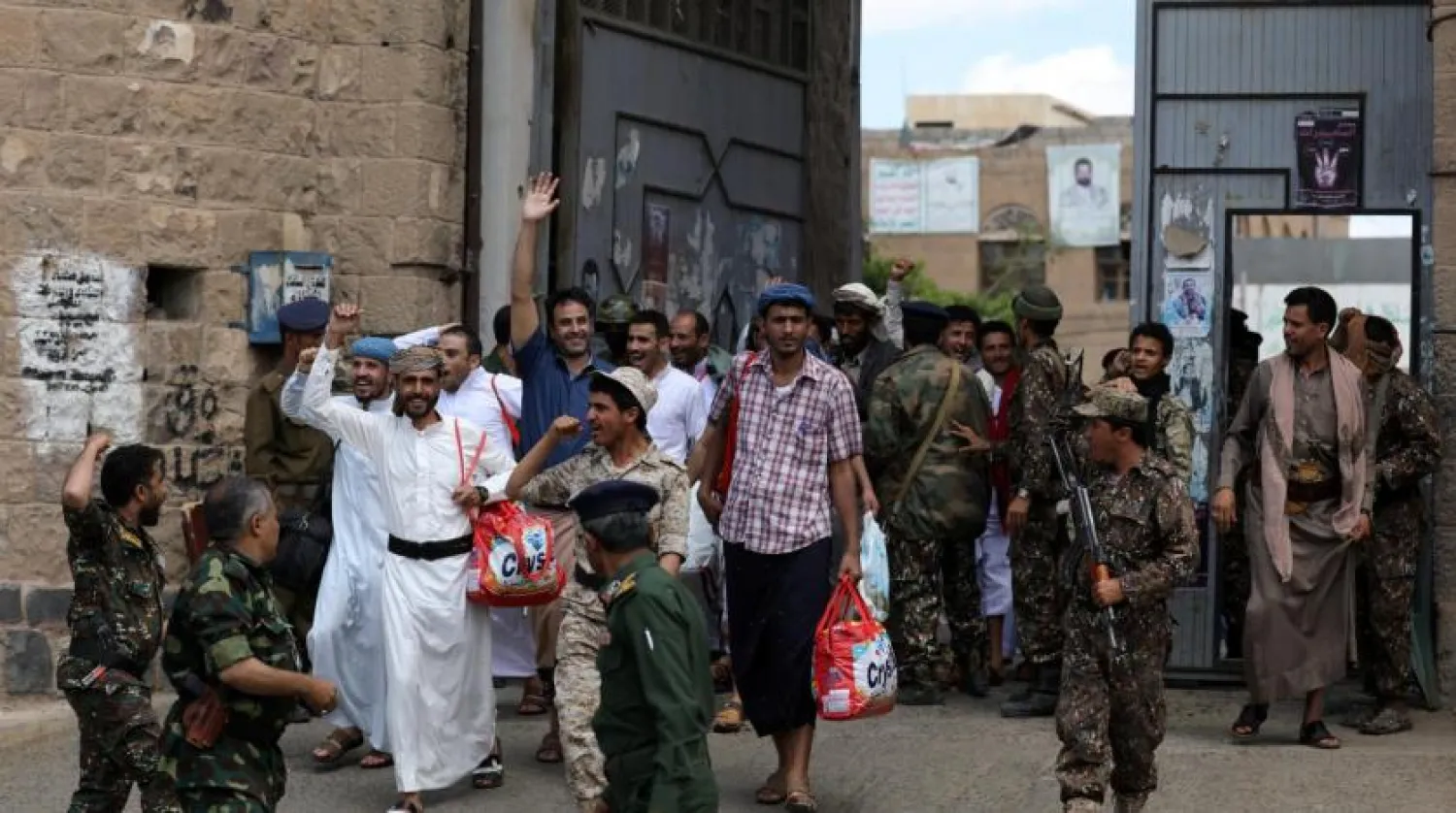Houthis released 70 percent of al-Qaeda's top members detained in prisons, which threatens civilians and constitutes a blow to international efforts to combat terrorism, according to a recent study by the Sanaa Center.
The study stated Houthis released over 400 prisoners in an exchange deal, which contributed to strengthening the ranks of the extremist organization and helped it overcome the recruitment crisis.
According to the study, the remaining Qaeda detainees are among the lowest-ranking members in the chain of command.
Furthermore, the Qaeda militant group no longer raids the prisons to release its members after Houthis responded to their requests, considering the prisoner exchange an excellent way to secure the freedom of their militants, regardless of international concerns.
The study showed that the militia did not object to any of the names provided by the Qaeda during negotiations, which only focused on the numbers of the prisoners.
During the talks, Qaeda requested the release of 20 members in exchange for releasing one Houthi prisoner, who belongs to the Houthi family.
In addition, the organization succeeded in liberating the fourth top leader in its Egyptian organization, al-Masry Saif al-Adl, detained in Iran since 2003, in exchange for the release of Iranian diplomat Nour Ahmad Nikbakht, who was kidnapped in 2012 by al-Qaeda in Yemen.
The study quoted al-Qaeda sources as saying that Nikbakht's release was, in fact, part of a tripartite deal that included Qaeda, the Houthi authorities, and Iran, in which many Qaeda leaders in Sanaa were released.
In April 2016, the Houthi militia conducted an exchange with Ansar al-Sharia, Qaeda's local wing in Yemen, to release 100 prisoners. The organization is classified on the global terrorism list.
Last July, the two groups exchanged four prisoners from both sides. Houthis handed over Qaeda leaders Aidarous al-Masoudi and Abdullah al-Masoudi, detained in the National Security Prison since before the coup.
Tribal and governmental sources say that the Houthi militia provided unlimited support to the Qaeda group since its coup in 2014 by releasing its leaders and members from intelligence prisons in exchange deals.
Researchers believe that the rise of the Houthis has turned Yemen into a fertile environment for polarization on a sectarian basis. It also escalated with their calls for resistance on religious grounds.
Qaeda took advantage of the widespread anger and the reaction to the militias' practices and was able to attract different groups to its ranks.









